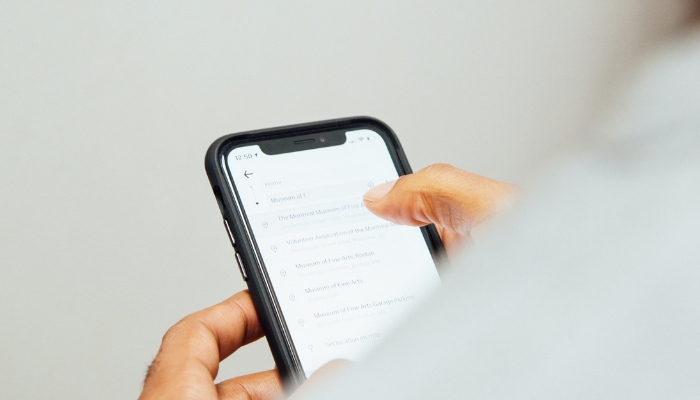
Imagine you’re a secret agent in an old spy movie, but instead of secret codes and invisible ink, you’ve got a burner phone. You’ve heard the term, sure, but do you know how burner works? Well, it’s simpler than you might think.
A burner phone is a prepaid, disposable mobile device that you can toss after use. It’s not connected to any personal information, so it’s virtually untraceable.
Burner phones work by offering a low-cost, prepaid, and anonymous way to communicate. They are purchased without a contract and are used until their service expires, making them ideal for temporary and private communication needs.
It’s like buying a soda with cash at a convenience store – no paper trail. So whether you’re a globe-trotting secret agent or just value your privacy, understanding how burners work can be useful.
Introduction to Burner Phones
If you’ve ever wondered what a burner phone is, let’s break it down: it’s a prepaid, disposable phone that you can toss out when you’re done with it.
This is a prime example of disposable technology, allowing for temporary communication without the commitment of a regular phone contract. The advantages of burner phones are numerous, including privacy, anonymity, and simplicity.
However, they’re not without limitations. For instance, burner phones often lack the advanced features of regular smartphones, such as high-resolution cameras or extensive app stores.
When comparing a burner versus regular phone, it’s essential to weigh these pros and cons. Ultimately, the choice depends on your specific communication needs and whether the benefits outweigh the limitations for you.
Understanding How Burner Phones Work

Now that you’re aware of what a burner phone is, let’s delve into how these disposable devices actually work. Known for their Operational Simplicity, burner phones function just like regular phones, but they’re often prepaid, removing the need to sign up for long-term contracts.
Burner phones offer:
- Burner Privacy: Your personal information stays yours. No need to tie it to the device.
- Disposable Convenience: Use it and ditch it. No long-term commitments.
- Burner Limitations: Limited features compared to a smartphone. It’s about simplicity, not sophistication.
- Burner Accessibility: Mostly anonymous, easy to buy, and ready to use right off the shelf.
Despite their limitations, the convenience, privacy, and accessibility they offer make burner phones a valuable tool in certain situations.
Legal Aspects of Using Burner Phones
While you may appreciate the privacy and convenience of a burner phone, it’s important to understand the legal aspects tied to their use. The privacy protection offered by these devices is appealing, yet their use for surveillance evasion has raised legal concerns.
Lawful use of burner phones is perfectly acceptable, but they’ve been scrutinized in criminal investigations due to their disposable nature and the anonymity they provide. Legal consequences can ensue if they’re used for illicit activities, such as fraud or other criminal acts. Therefore, it’s crucial to use these phones responsibly, remaining aware of the potential risks and benefits.
Privacy and Anonymity: The Core of Burner Phones

How Burner Phones Ensure Privacy and Anonymity
Burner phones are all about keeping your identity hidden and your conversations private, which brings us to a common query: Can Burner Phones Be Tracked? Here’s how they do it:
- No Personal Information Required: When you get a burner phone, you don’t need to give your name, address, or any personal details. This means there’s no easy way to link the phone back to you.
- Prepaid SIM Cards: These phones use prepaid SIM cards that you can buy with cash. Since there’s no credit card or billing information involved, it’s tough for anyone to trace the phone back to you.
- Disposable Nature: The main feature of a burner phone is that you can easily get rid of it. Once you’re done using it, you can throw it away. This makes it almost impossible for someone to follow your phone trail.
- Limited Data Storage: Burner phones usually don’t store much data. They don’t have the fancy apps and features that store your personal information. So, even if someone gets their hands on your burner phone, they won’t find much about you.
- No Long-Term Contracts: Regular phones often come with contracts that tie you to a specific service provider for a long time. Burner phones don’t have this. You use them as long as you need, with no strings attached.
Comparison with Traditional Mobile Phones
Now, let’s see how burner phones stack up against traditional mobile phones in terms of privacy:
- Registration Requirements: Regular phones often require registration with personal details. This makes it easier to track who’s using the phone. Burner phones skip this part, offering more anonymity.
- Billing and Contracts: With traditional phones, you usually have monthly bills and contracts that link the phone to you. Burner phones use prepaid plans, so there’s no monthly bill linking you to the phone.
- Data Tracking: Smartphones often track your location, store your search history, and even keep tabs on your app usage. Burner phones, being more basic, don’t track all this information.
- App Usage: Regular smartphones are loaded with apps that can track and store your personal data. Burner phones are simpler, with minimal features, reducing the risk of personal data leakage.
- Longevity and Disposal: Traditional phones are meant to be used for years and are linked to your identity for a long time. Burner phones are designed to be used for a short period and then disposed of, leaving no trace.
In conclusion, burner phones offer a level of privacy and anonymity that traditional mobile phones can’t match. They’re perfect for anyone who wants to keep their communication private and their identity hidden.
The Role of SIM Cards in Burner Phones
Impact of SIM Cards on Traceability
SIM cards play a crucial role in how burner phones maintain privacy and avoid traceability. Here’s how:
- No Personal Data Linked: Usually, when you buy a SIM card for a burner phone, you don’t need to provide personal information. This lack of data makes it hard to trace the SIM card, and therefore the phone, back to a specific person.
- Prepaid and Disposable: Burner phone SIM cards are often prepaid. This means you pay for them upfront, often in cash, and there’s no need for a credit check or a billing address. Once the credit runs out, the SIM card, and by extension the phone, becomes virtually untraceable.
- Easy to Replace: SIM cards in burner phones are designed to be easily replaceable. You can switch SIM cards frequently, making it even harder for someone to track your phone usage over time.
Changing and Disposing of SIM Cards
Changing and disposing of SIM cards in burner phones is a straightforward process:
- Switching SIM Cards: To change a SIM card, you simply remove the old one and insert a new one. This can be done in seconds, instantly giving you a new phone number and disconnecting the previous one from your device.
- Disposal of Old SIM Cards: Disposing of a SIM card is as simple as removing it from the phone and destroying it. Some people cut them up, while others might burn them. The key is to make sure the SIM card is completely unusable and cannot be linked back to any of your activities.
In summary, SIM cards are the heart of a burner phone’s ability to remain untraceable. Their easy-to-change and disposable nature contribute significantly to the privacy and anonymity that burner phones provide. By frequently changing and properly disposing of SIM cards, users of burner phones can maintain a high level of privacy and reduce the risk of being tracked.
Technological Advancements and Burner Phones

Recent Technological Developments Affecting Burner Phones
The world of burner phones is not immune to the rapid advancements in technology. Here’s how recent developments have impacted these devices:
- Enhanced Network Capabilities: With the rollout of 5G and improved 4G networks, burner phones now offer faster and more reliable connections. This upgrade makes them more efficient for communication, although it also potentially increases the ability to track network activity.
- Digital and Virtual SIMs: The emergence of digital and virtual SIM cards has revolutionized burner phones. Users can now switch numbers or carriers without physically changing SIM cards, enhancing privacy and convenience.
- Smart Burner Phones: Some burner phones are now incorporating smart features while maintaining their disposable nature. These smart burner phones can run basic apps and access the internet, offering more functionality than traditional ‘dumb’ burner phones.
- Encryption and Security Features: Modern burner phones are beginning to include better encryption and security features. This development makes communications more secure, protecting against interception and unauthorized access.
- Integration with Online Services: Burner phones are increasingly being integrated with online services and apps. This integration allows users to use temporary numbers for online verifications, adding an extra layer of privacy to digital activities.
The Future of Burner Phones in the Digital Age
Looking ahead, the future of burner phones in the digital age seems to be influenced by several key trends:
- Increased Demand for Privacy: As digital surveillance becomes more pervasive, the demand for devices that can ensure privacy, like burner phones, is likely to increase.
- Hybrid Models: We may see more hybrid models of burner phones that blend the features of smartphones with the disposability and anonymity of traditional burner phones.
- Regulatory Challenges: Burner phones might face more stringent regulations as governments seek to crack down on illicit activities. This could lead to changes in how burner phones are sold and used.
- Technological Arms Race: As tracking technologies become more advanced, burner phones will need to evolve to stay ahead. This could lead to more sophisticated privacy features and perhaps even AI-driven security measures.
- Eco-Friendly Disposal: With growing environmental concerns, the future might see the development of more eco-friendly ways to dispose of and recycle burner phones.
In conclusion, technological advancements are shaping the evolution of burner phones, making them more versatile and secure. As we move further into the digital age, these devices are likely to become even more sophisticated, balancing the need for privacy with the challenges of modern technology and regulation.
Practical Uses of Burner Phones
Various Legitimate Uses of Burner Phones
Burner phones, often associated with spy movies and clandestine operations, have a wide range of legitimate and practical uses in everyday life. These simple, disposable phones offer a level of privacy and flexibility that is appealing in many scenarios.
- For Personal Security and Privacy: In an age where personal data is constantly at risk, burner phones provide a secure way to communicate. People who are concerned about their privacy, such as victims of stalking or harassment, often use burner phones to stay in touch with trusted contacts without revealing their primary phone number. This added layer of security ensures their communication remains private and away from potential threats.
- In Business and Professional Contexts: Professionals who handle sensitive information, like lawyers or journalists, use burner phones to protect the confidentiality of their sources and clients. By using a separate phone for sensitive conversations, they can safeguard their professional integrity and the privacy of those they are working with.
- During Travel: Travelers often use burner phones as a cost-effective and secure way to stay connected. By using a local SIM card in a burner phone, they avoid the high roaming charges associated with their primary phone. Additionally, in case of theft or loss during travel, a burner phone’s loss is less impactful than that of a smartphone containing personal data.
- For Online Selling and Purchases: Individuals engaging in online transactions, especially on platforms like Craigslist or Facebook Marketplace, use burner phones to communicate with buyers or sellers. This practice keeps their personal number private and protects them from potential scams or harassment.
- In Emergency Situations: Burner phones are essential for emergency kits, offering long battery life and ease of use. In power outages or natural disasters, they provide a dependable communication method when other devices might not work.
Case Studies or Examples of Burner Phone Usage
- Case Study (Protecting Journalistic Sources): In one notable instance, a journalist covering sensitive political issues used a burner phone to communicate with a confidential source. This practice ensured that their conversations remained off the record and protected the source’s identity, which was crucial in a politically sensitive environment.
- Example (Disaster Response Teams): During natural disasters like hurricanes or earthquakes, disaster response teams often use burner phones. These phones are crucial for communication in areas where the usual communication infrastructure is damaged or overloaded. Their simplicity and reliability make them ideal for such critical situations.
- Case Study (Corporate Espionage Prevention): A corporation, facing the threat of corporate espionage, issued burner phones to its top executives while they were discussing a highly confidential merger deal. This strategy prevented potential eavesdropping and ensured that sensitive information remained within a closed loop.
- Example (Personal Safety in Dating): With the rise of online dating, personal safety has become a significant concern. Many individuals use burner phones when initially communicating with matches from dating apps. This approach allows them to maintain their privacy and security until they feel comfortable sharing their real contact information.
- Case Study (Event Coordination): During a music festival, coordinators used burner phones for staff communication. This ensured efficient team coordination and avoided the risks associated with using personal phones, like battery drain or data breaches.
- Example (Travel Safety): Backpackers in remote areas carried burner phones alongside their smartphones. They used these for local calls and in situations where using their main phones posed risks of theft or high roaming costs.
Burner phones are not just for secrecy; they play vital role in enhancing personal safety, maintaining professional confidentiality, and offering practical solutions where regular smartphones fall short. The diverse case studies and examples underscore their versatility and usefulness in various real-world scenarios.
Conclusion
In conclusion, you’ve now grasped the essence of burner phones. You understand their functionality, legality, and the privacy they offer.
Remember, while these devices have legitimate uses, they can also be misused. It’s crucial to navigate the ethical and legal implications carefully.
Stay informed, use wisely, and you’ll harness the power of burner phones and burner phone apps anonymously effectively. The technical world is complex, but with detailed understanding, you can navigate it successfully.
FAQs on Burner Phones
What exactly is a burner phone?
A burner phone is a low-cost, prepaid mobile phone that you can dispose of once its credit is used up or you no longer need it. It’s typically used for temporary communication, offering privacy and anonymity.
How long can I use a burner phone?
The usage duration of a burner phone depends on your needs. Some people use them for a few days, while others might use them for several months. The key is their disposability – you can stop using them at any time without any contractual obligations.
Are burner phones legal?
Yes, burner phones are legal. They are often used for legitimate reasons like protecting privacy, secure business communications, or travel. However, like any tool, they can be misused, which has led to a somewhat negative perception in popular media.